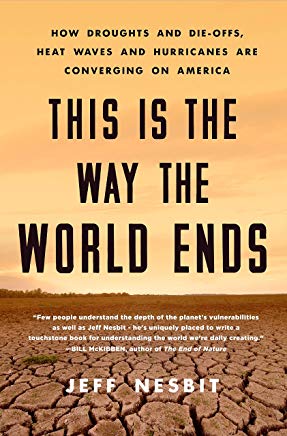When I was growing up, the world was obsessed with apocalyptic nuclear war. (You may remember the quote — “I do not know with what weapons World War III will be fought, but World War IV will be fought with sticks and stones” — usually attributed to Albert Einstein).
We all survived the Cold War, and although the list of nuclear powers keeps growing, we’re no longer having duck-and-cover drills in schools. But now the thought is growing that if the world does end, it won’t be with a bang, but with a whimper.
Currently, there are at least 34 countries who are unable to produce their own food due to water and land limitations. By 2050, more than half of the world’s population is expected to rely on food imported from other countries (https://www.worldatlas.com/articles/the-countries-importing-the-most-food-in-the-world.html). On top of that, a joint report by the United Nations and World Bank says that 40 percent of the world’s population is affected by water scarcity and 700 million people are at risk of being displaced by intense water scarcity by 2030 (https://www.cbsnews.com/news/world-leaders-sound-alarm-over-global-water-crisis/). The next major war will probably be fought over water.
Our current situation has multiple causes, but the biggest appears to be climate change. One of the people sounding the alarm is Jeff Nesbit, author of This Is the Way the World Ends: How Droughts and Die-offs, Heat Waves and Hurricanes Are Converging on America (https://www.amazon.com/This-Way-World-Ends-Hurricanes/dp/1250160464/ref=sr_1_1?). The first half of this book is very grim — “Longer droughts in the Middle East. Growing desertification in China and Africa. The monsoon season shrinking in India. Amped-up heat waves in Australia. More intense hurricanes reaching America. Water wars in the Horn of Africa. Rebellions, refugees and starving children across the globe. These are not disconnected events. … Our world is in trouble – right now.”

But like a doctor making a diagnosis, then prescribing a cure, Jeff is ultimately an optimist — “Like every significant challenge we’ve faced―from creating civilization in the shadow of the last ice age to the Industrial Revolution―we can get out of this box canyon by understanding the realities and changing the worn-out climate conversation to one that’s relevant to every person.”
Something to think about as we prepare for this year’s hurricane season.
